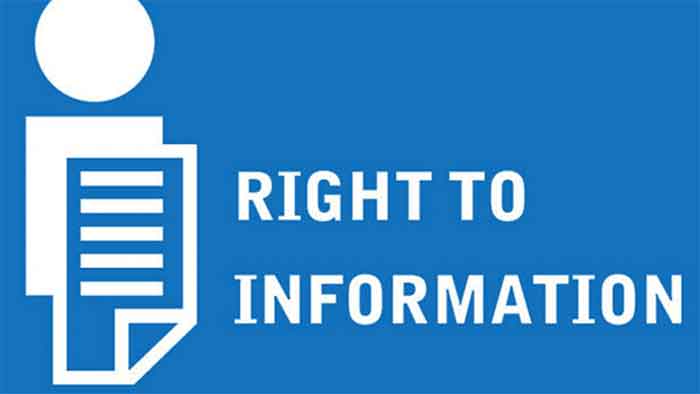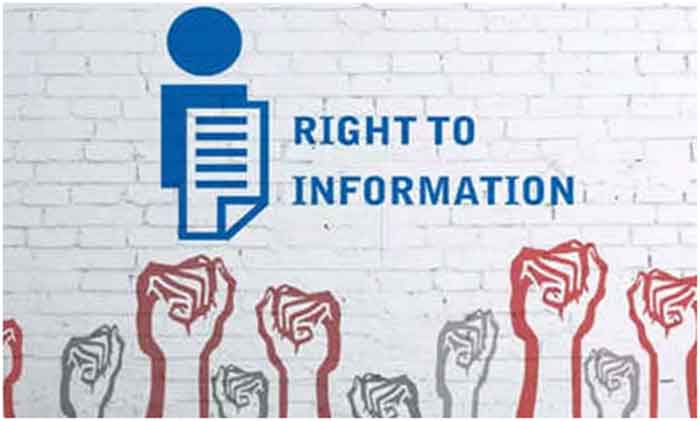
“The right to know is the right to live”- Boldly stated by Indian activist Aruna Roy, entices the mind to ponder upon a very fundamental thought that one cannot change what one is not aware of, but, once we are aware, we cannot help but change. India is the largest democracy in the world. A form of Governance, where it is popularly believed that power resides in the people’s hands. But how many of us concur with this? The even more pressing question is, how many of us are aware that it is our right to question and to know? The Right to Information (RTI) Act, passed in 2005 in India’s parliament, helps answer that. The Act empowers the citizens to seek secure information under public authorities’ control to promote transparency and accountability of those in power.
Empowering people to question the status quo
In an exciting and enlightening conversation with Mr Venkateshwar Nayak, an integral part of Commonwealth Human Rights Initiative, we discussed the role and importance of the RTI Act and how it can serve as a powerful tool in the functioning of the elected Government. Mr Nayak currently heads the Access to Information program and plays a prominent role in training thousands of government officers and executives of public sector enterprises. He also received the Best RTI Activist Award in the year 2018.
During our conversation with Mr Nayak, we delved upon how RTI can and has previously, served to function as a powerful tool to bring the governed from a state of darkness to translucid and finally to transparency, since its implementation. It is the responsibility of the government to enlighten the citizens with every piece of information that should be available in the public light while ensuring measures that the details disclosed does not compromise the security of the nation. But, corruption, pressure and fear of a negative wave from the opposition party, overpowers the fundamental principle of letting people know what they rightfully should be aware of. RTI has equipped organisations and individuals to pressure the Government to answer any mishandling of the situation, delays in execution, and amendments in law and order. It has forced those in power to quicken their pace to act upon, for the betterment of the society. Numerous scams like the Adarsh Housing Society Scam, Commonwealth Games Fund Diversion Scam, Electoral Bond, to name a few, have come to the public eye because of the torchbearer RTI Act in place.
RTI Transforming Lives
While the Right to Information has played an instrumental role in uncovering the scams worth billions but in hindsight, RTI is empowering Indian citizens from scholars in metropolitan cities to labourers in villages to fight for their rights. Right to Information is a kind of virtue that might not put food on the poor’s plate, but it gives them the power to ask why the promised food quota did not reach the nearest ration shop – says Mr Nayak.
One such story highlights the determination of people in rural Karnataka who were not receiving their monthly rations. Lack of awareness regarding the food security programs and a limited number of ration stores were some of the core issues which led to campaigns, social audits and public hearings conducted by the people to fight hunger. They demanded the availability of ration at correct prices.
Within a week of public hearings and social audits, villagers received their ration cards and saw a significant improvement in the quality of food grains delivered in the villages. Realising the power of RTI, it is unarguably accepted as a tool for empowerment of people in rural Karnataka, which will enable them to have a dialogue with those in power and demand answers for their actions.
Increasing the reach of RTI
Since the enactment of the law, we as a nation have come a long way. Every year more than half a crore petitions are filed, which is highest in the world, but a mere 0.5% of the size of our total population, which essentially means that less than 1 out of 200 people in India uses the law. Majority of these petitions are filed by a few groups of people, including young law and social scholars, activists, media personnel and retired citizens to name a few, who are taking the responsibility to leverage the law for the betterment of the society. There is a dire need for civil society organisations and media influencers to come forward and take the initiative ahead. While filing the petition is only a part of the tedious process, the majority face difficulty when required to file the first or second appeal. It is at this stage, the role of activists like Mr Nayak becomes crucial. Using the limited resources at his disposal, he organises webinars and workshops to help people understand the process.
In this digitally enabled world, transferring information from a safe source to the public is a fundamental duty of the Government. The willingness of politicians and bureaucrats shouldn’t come in the way of the public seeking adequate information. There is a need to shift from the unenterprising culture that primarily prevails in the Government’s functioning, to a proactive and judicious system. It will encourage the PIO officers to increase the efficiency in responding to RTI queries. There is also an ardent need to mobilise the citizens to practise their right to know effectively. RTI is still in a nascent stage, where only a drop size of the population file RTI annually. For the query redressal mechanism to bloom soon, all stakeholders must get involved in the process and help in the government’s productive functioning.
References
- https://vikaspedia.in/e-governance/about-rti-act-2005/rti-news-update
- https://thewire.in/government/rti-information-commissions-lockdown
- https://www.humanrightsinitiative.org/
Abhishek Kumar is a PGP-2 student at IIM Ahmedabad
SIGN UP FOR COUNTERCURRENTS DAILY NEWSLETTER














































